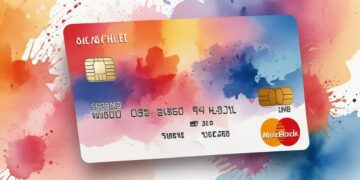How to Choose the Best Type of Loan to Finance the Purchase of Your Own Home

Financing your home purchase is one of the most significant financial decisions you’ll ever make, and choosing the right loan can have lasting implications for your financial stability. With a variety of loan options available, understanding each can seem daunting, but it is essential for making an informed choice. Below are some key types of loans and important factors to consider when selecting the right one for your needs.
Types of Loans
- Conventional Loans: These loans are not backed by any government agency and generally require a higher credit score, often a minimum of 620. They come with fixed or adjustable interest rates and can cater to a variety of homebuyers, primarily those with stable incomes and strong credit histories. For instance, if you have a good credit score, you may be able to secure a lower interest rate, thereby reducing overall monthly payments.
- FHA Loans: Insured by the Federal Housing Administration, FHA loans are designed to assist first-time buyers or those with lower credit scores, typically starting at around 580. These loans allow for a down payment as low as 3.5%, making them accessible for individuals who may struggle to save for a substantial down payment. For example, if you are purchasing a home worth $250,000, you could put down as little as $8,750, which is significantly lower than many conventional loan requirements.
- VA Loans: Exclusively for veterans, active-duty service members, and certain members of the National Guard, VA loans come with compelling benefits such as zero down payment and no private mortgage insurance (PMI) requirement. This can save you thousands of dollars over time. Additionally, VA loans typically have competitive interest rates, making them an excellent choice for eligible borrowers looking to minimize upfront costs and long-term interest expenses.
- USDA Loans: Aimed at low to moderate-income buyers in rural areas, USDA loans offer the unique benefit of no down payment. To qualify, you must meet specific income limits and the property must be located in a designated rural area. This program helps promote homeownership in less densely populated regions and can also offer reduced mortgage insurance costs.
Key Factors to Consider
- Interest Rates: Always compare interest rates from multiple lenders. Even a slight difference in rate can significantly affect your monthly payments and total interest paid over the life of the loan.
- Loan Term: Common loan terms are 15, 20, or 30 years. A shorter-term loan will typically have higher monthly payments but lower overall interest costs, while a longer-term loan may offer more manageable payments but at greater total interest expense.
- Down Payment: Assess how much you can afford upfront. Depending on the loan type, this can range from 0% to 20% or more. A larger down payment can lower your monthly payments and potentially eliminate the need for PMI.
- Fees: Be informed about closing costs, which can include appraisal fees, title insurance, and other expenses. These can add up quickly, so it’s crucial to factor them into your budget when choosing a loan.
By taking the time to thoroughly research and analyze loan options, you can position yourself to make an effective home purchase. Understanding your options not only prepares you for the financial commitment ahead but also ensures that you choose a loan that best fits your current circumstances and future financial goals.
DISCOVER MORE: Click here for full details
Understanding Loan Types
When it comes to financing your home purchase, it’s crucial to comprehend the various loan types available and how they can impact your financial future. Each type comes with its own benefits, drawbacks, and eligibility requirements. Here is a detailed breakdown of the most popular loan types:
- Conventional Loans: Conventional loans are standard mortgage products not insured by the federal government. They typically require a credit score of at least 620 and often favor borrowers with stable incomes and high credit scores. The two primary types of conventional loans are fixed-rate loans, where the interest rate remains constant throughout the loan term, and adjustable-rate mortgages (ARMs), which offer lower initial rates that can fluctuate after a predetermined period. Consider this option if you have a strong credit history and can afford a larger down payment, generally 20% of the home’s price, to avoid private mortgage insurance (PMI).
- FHA Loans: If your credit score is below 620 or you are a first-time homebuyer, an FHA loan could be a suitable option. These loans allow down payments as low as 3.5%, making homeownership achievable for many. However, you will incur mortgage insurance premiums (MIP), which can increase your monthly payments. Despite this, the lower initial costs can be beneficial if you are cash-strapped.
- VA Loans: For military veterans and active-duty service members, VA loans provide unique advantages, such as no down payment and no PMI. This makes them a financially attractive option, particularly if you meet the eligibility requirements. Additionally, VA loans often have competitive interest rates and can help you save on overall costs, making them an excellent choice for eligible buyers.
- USDA Loans: USDA loans are geared toward low to moderate-income individuals in designated rural areas. They offer 100% financing, meaning no down payment is required. To qualify, you must meet certain income limits and choose a home located in an eligible area. This option can be an excellent choice for buyers looking for affordable housing in less populated regions.
Understanding these loan types is fundamental to making an informed decision tailored to your financial situation. As you weigh your options, consider factors like your credit score, how much you can afford for a down payment, and whether you’re eligible for special programs like VA or USDA loans.
Evaluating Your Financial Situation
Before selecting a loan type, carefully assess your financial health, including credit scores, income stability, and debt-to-income ratios. These elements play a significant role in your loan qualifications and the interest rates you can secure. Here are essential steps to evaluate your financial situation:
- Check Your Credit Score: Start by obtaining a copy of your credit report from a reliable source. This will give you insight into your creditworthiness. If your score is low, consider delaying your purchase to improve it.
- Calculate Your Debt-to-Income Ratio: Calculate your monthly debt payments and divide them by your gross monthly income to determine your debt-to-income ratio. Ideally, this ratio should be below 43% to qualify for most loan types.
- Determine Your Budget: Establish how much you can afford for a down payment and monthly mortgage payments. Consider additional costs such as property taxes and homeowners insurance.
By taking a thorough inventory of your financial situation, you can narrow down the loans suitable for you and pave the way for a more secure home purchase.
DISCOVER MORE: Click here for insights on the best bank accounts for self-employed individuals
Identifying Loan Options Based on Your Lifestyle and Future Plans
In addition to evaluating your current financial situation, it’s crucial to consider how your lifestyle and future plans may affect your loan choice. Different loan types can better align with certain personal circumstances. Here are specific factors to keep in mind when selecting a loan type:
- Length of Time in Your Home: Think about how long you plan to stay in your new home. If you intend to live there for a short term, an adjustable-rate mortgage (ARM) could be suitable due to its lower initial interest rate. However, if you see yourself settling in for the long haul, a fixed-rate loan may be preferable for its stability against market fluctuations.
- Future Financial Goals: Consider your long-term financial goals, such as career changes, family planning, or retirement. If you anticipate a significant income rise, aiming for a shorter-term fixed loan might allow you to pay off your mortgage faster, saving on interest. Conversely, opting for a more manageable monthly payment through a 30-year mortgage could free up funds for investments or other priorities.
- Market Conditions: Stay informed about current mortgage interest rates and housing market trends. If rates are notably low, it may be an opportunity to lock in a fixed-rate loan for the long term. If you’re leaning towards an ARM, keep an eye on potential rate increases once the introductory period ends, which could strain your budget later.
Taking these factors into account enables you to choose a loan that complements not just your current financial standing but also your ambitions and aspirations.
Understanding the Total Cost of Loans
One essential aspect often overlooked when selecting a mortgage is understanding the total cost associated with each loan type. Monthly payments are just one part of the equation; here are vital elements to consider:
- Interest Rates: Always compare the interest rates offered by different lenders for the same loan type. An interest rate even slightly lower could save you thousands over the life of the loan. Consider obtaining rate quotes from multiple lenders to ensure you’re getting a competitive deal.
- Closing Costs: Be mindful of closing costs, which typically range from 2% to 5% of the loan amount. These costs include origination fees, appraisal fees, title insurance, and other miscellaneous fees. Some loan options, like VA loans, may have lower closing costs, so factor these into your overall budget.
- Loan Term: Determine the loan term that suits your financial plan. While a 30-year mortgage results in lower monthly payments, it also means more interest paid over time. A 15-year mortgage will have higher monthly payments; however, it will allow you to build equity faster and pay off your home sooner.
By considering the total cost of different loans, you can more effectively weigh your options and select a mortgage that aligns with your financial objectives.
Consulting with Financial Professionals
Finally, don’t hesitate to seek advice from financial professionals. A mortgage broker or a financial advisor can provide tailored assistance in selecting the right loan. Here’s how you can maximize your consultation:
- Prepare Your Financial Documents: Gather all relevant financial information, including income statements, tax returns, and credit reports, to give a comprehensive overview of your financial health.
- Ask Specific Questions: Come prepared with specific questions regarding loan types, market conditions, and your options based on your unique financial profile.
- Understand the Terms: Seek explanations regarding complex terms and jargon. It’s vital to understand every aspect of the loan you’re considering to avoid undesirable surprises later on.
With the right guidance and a thorough understanding of your options, you’ll be in a much better position to choose the loan that best fits your needs and long-term financial strategy.
DISCOVER MORE: Click here to learn how to apply
Conclusion
Choosing the right loan to finance your home purchase is a critical decision that requires careful consideration of various factors. To ensure that you are making an informed choice, start by evaluating your financial health—including credit score, income, and debt-to-income ratio. These elements will significantly influence the loan options available to you.
Next, think about your lifestyle and housing plans. Are you aiming for a long-term residence or a temporary home? Your intentions can steer you towards either fixed or adjustable-rate mortgages. Additionally, keep in mind your future financial goals, which can impact your decision on loan terms and payments.
It’s also crucial to analyze the total cost of loans, beyond just monthly payments. Be aware of interest rates, closing costs, and the overall loan term. A lower interest rate can save you substantial amounts over time, so compare quotes from multiple lenders to secure the best deal.
Finally, engaging with financial professionals can provide personalized insights tailored to your specific needs. By preparing your financial documents and posing relevant questions during consultations, you can gain a clearer understanding of loan terms and navigate this complex process with confidence.
In summary, thorough research, strategic planning, and expert advice will empower you to choose a mortgage that aligns with your financial aspirations and helps you achieve your goal of homeownership. Make informed decisions now to secure a sound financial future.

Linda Carter is a writer and financial expert specializing in personal finance and financial planning. With extensive experience helping individuals achieve financial stability and make informed decisions, Linda shares her knowledge on the Take Care Garden platform. Her goal is to empower readers with practical advice and strategies for financial success.





